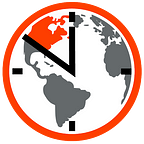Making Time to Heal
By Arielle Martinez Cohen and Lyne Odhiambo
With sea levels rising, unemployment rates rising, COVID-19 death toll rising and youth activists rising in the face of an innumerable list of things to worry about, it’s not surprising that our collective mental health has been skittering in a tailspin. Stressful times like this are when we need to practice wellness the most. A group of organizers, including myself, got together over Zoom to build a response for helping each other cope in isolation. The result was our digital campaign, Zero Hour: Time to Heal, which makes use of various artistic media as tools for meditation.
Records of meditation date back to 1500 BCE in early Hindu practice, and it was tied to the spiritual practice of Buddhism around 580 BCE. Colonialism in the 19th century brought it to the West. Then the mid-20th century rose with popular interest in Mindfulness Based Stress Reduction (MBSR) as a secular practice.
Time to Heal will involve guided yoga, free writing, cooking, and more creative sessions that participants can follow along at home. No matter the method, the simple act of focusing on a task and being mindful about that experience helps relieve tension.
I’m usually prone to anxiety in the form of headaches and overthinking, and that has worsened with trying to process the weight of violence against BIPOC at the hands of police coming to a point of cultural reckoning. It has been really grounding to work with the Global Outreach Team as we figure out how to move forward while looking out for each other. I’ve found even more stability getting to connect with people from Zero Hour’s Music Team to create this campaign. Here’s what the director had to say.
Lyne: How have current events affected your mental health?
Arielle: Before quarantine, I was the type of person who had to leave the house at least once a day. While quarantine had allowed me more time to grow and change as a person, it had also heightened my anxiety and other mental health issues.
Lyne: How have you found community through an art form or spiritual practice?
Arielle: As the Music Director at Zero Hour, I am so grateful to have a community on our Music Team. Even though I’ve never met most of the people on the team in person, I feel connected to them when we work on writing songs for the climate movement. Writing songs in general has also really helped calm my anxiety.
Lyne: What do you hope people get out of these healing sessions?
Arielle: These times are incredibly stressful and isolating. For climate organizers, it’s especially stressful, as there are great health and safety risks when protesting in public. I hope that people find healing and a sense of community through these workshops, and that these things give them the strength to continue their work within the climate justice movement and beyond!
As Arielle said, we are stronger when we heal, not only for ourselves but to continue working within the climate justice movement and its intersectionalities.
Arielle Martinez Cohen is an 18-year-old singer, songwriter, producer, and activist from Los Angeles, CA. She serves as the Music Director at Zero Hour.
Lyne Odhiambo is a youth activist from Lexington, Kentucky who serves on the Zero Hour Global Outreach Team.
